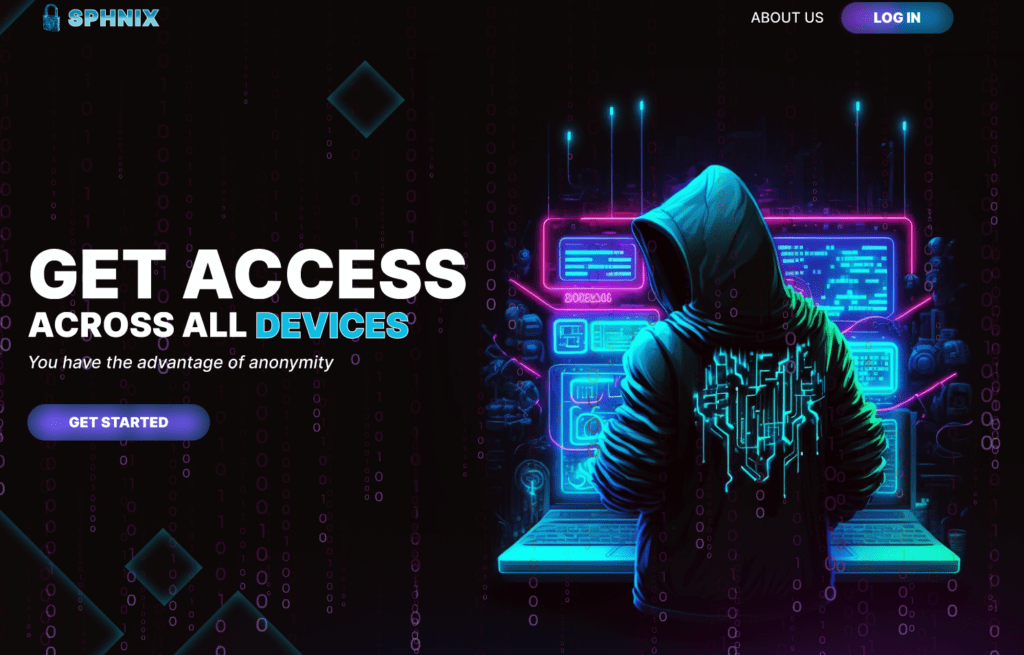Have you ever wondered if it’s possible to clone an iPhone without the owner’s knowledge? In a world where our phones are extensions of ourselves, the idea of cloning them secretly seems almost like a plot from a spy movie. But is this concept purely fictional, or could it be a hidden reality lurking in the shadows of our digital lives?
The short answer is yes, but with caveats. Cloning an iPhone involves duplicating its identity to another device, effectively allowing it to mirror calls, messages, and other data. However, this process isn’t straightforward and raises significant ethical and legal questions. It’s crucial to understand the complexities and potential risks involved, which we delve into in the article.
With the rise of advanced spy apps like Sphnix Spy App, the boundaries of personal privacy have been shattered. This article delves into the unsettling world of iPhone cloning, uncovering the dark techniques used to install these apps without detection and exploring the terrifying notion of remote installation. Brace yourselves, for the modern era has taken surveillance to unprecedented levels.
What is iPhone cloning?
iPhone cloning refers to the process of creating an identical copy or replica of an iPhone, including its data and settings, without the knowledge or consent of the owner. This unethical practice allows individuals to gain unauthorized access to someone’s personal information, messages, contacts, and other confidential data. Cloning an iPhone without someone knowing is a violation of privacy and often done for malicious purposes, such as spying or unlawful activities.
Is it possible to clone an iPhone without someone knowing?
Yes, it is indeed possible to clone an iPhone without someone knowing. With the advancement of technology, various methods have emerged that allow individuals to clone iPhones remotely or with physical access to the device. This raises significant concerns about privacy and security, as unsuspecting individuals can become victims of unauthorized surveillance or data theft without even realizing it.

This image is property of images.unsplash.com.
Methods of cloning an iPhone
There are two primary methods of cloning an iPhone: physical access to the device and remote access via spy apps.
1. Physical access to the iPhone
Physical access to the iPhone provides the cloner with direct control over the device, allowing them to extract and replicate the necessary information. Here are three common methods used for cloning an iPhone with physical access:
a. Cloning via iTunes backup
One method involves creating a backup of the target iPhone’s data using iTunes. The cloner can then use this backup to restore the data onto another iPhone, essentially creating a replica of the original device. This process requires access to the target iPhone and a computer with iTunes installed.
b. Cloning via third-party software
Another method involves using third-party software specifically designed for iPhone cloning. These software programs often claim to offer convenience and ease of use, but they can be risky and unreliable. Some of these programs may contain malware or require extensive technical knowledge to operate.
c. Cloning via SIM card swapping
In this method, the cloner physically swaps the target iPhone’s SIM card with another device. By doing so, they gain access to the phone number and associated services, allowing them to intercept calls, messages, and other communications. This method requires physical access to the iPhone and a compatible device to swap the SIM card.
2. Remote access via spy apps
Spy apps provide remote access to the target iPhone, allowing for stealthy monitoring and cloning without physically handling the device. These apps are often installed without the user’s knowledge and can grant the cloner complete control over the iPhone’s functionalities. Here are the steps involved in remote iPhone cloning:
a. Introduction to spy apps
Spy apps are software applications designed to secretly monitor and record various activities on an iPhone. These apps can track call logs, text messages, browser history, social media interactions, location data, and more. They are typically marketed as tools for parental control or employee monitoring but are also misused for unauthorized surveillance.
b. Installing spy apps without user’s knowledge
To install a spy app on a target iPhone without the user’s knowledge, the cloner must gain physical access to the device for a brief period. During this time, they can install the spy app discreetly, ensuring that it remains hidden from the user’s view. The installation process usually involves bypassing security measures and exploiting vulnerabilities in the iPhone’s operating system.
c. Cloning an iPhone remotely
Once the spy app is successfully installed on the target iPhone, the cloner gains remote access to the device. They can then monitor and clone various aspects of the iPhone, including calls, messages, GPS location, and app usage. The cloned data is often transmitted to a remote server, where the cloner can access it at their convenience.
d. Risks and legality of remote iPhone cloning
The use of spy apps to clone iPhones remotely is highly unethical and illegal in many jurisdictions. It violates individuals’ privacy rights and can lead to severe consequences for the cloner if caught. Laws determining the legality of spy app usage vary by country, with some jurisdictions explicitly prohibiting unauthorized surveillance and invasion of privacy.
Sphnix Spy App
One specific spy app that has gained attention is the Sphnix Spy App. This app is frequently advertised as a way to catch cheating spouses or monitor employees, offering a range of features for remote surveillance.

1. Overview of Sphnix Spy App
Sphnix Spy App is marketed as a comprehensive monitoring solution for iPhones, claiming to provide remote access and cloning capabilities. However, it is essential to note that the use of such apps for cloning purposes is illegal and unethical.
2. Features of Sphnix Spy App
Sphnix Spy App boasts a wide range of features, including call monitoring, message tracking, GPS location tracking, social media monitoring, and more. These features aim to provide the cloner with complete control and visibility of the target iPhone’s activities.
3. Installation process of Sphnix Spy App
Much like other spy apps, the installation process of Sphnix Spy App typically requires physical access to the target iPhone. Once installed, the app operates covertly, capturing and transmitting data to a remote server without the user’s knowledge.
4. Cloning an iPhone using Sphnix Spy App without user’s knowledge
Sphnix Spy App, like other spy apps, allows for remote cloning of an iPhone without the user’s knowledge. It provides the cloner with extensive access to personal and confidential information, potentially exposing individuals to various risks and dangers.
5. Security concerns and ethical considerations of using Sphnix Spy App
Using spy apps like Sphnix Spy App raises significant security concerns and ethical considerations. First and foremost, it is essential to recognize that such apps invade individuals’ privacy and violate their rights. Additionally, spy apps can expose sensitive data to cybersecurity threats and may be exploited by malicious actors for their gain.
Legal implications of iPhone cloning
The act of cloning an iPhone without the owner’s knowledge carries severe legal implications. Some of the key legal concerns associated with iPhone cloning include:
1. Invasion of privacy
Cloning an iPhone without consent is a clear invasion of privacy. It allows unauthorized individuals to gain access to personal information, conversations, and other private data, violating an individual’s rights to privacy and confidentiality.
2. Violation of laws and regulations
The use of spy apps or any other method for iPhone cloning may violate laws and regulations related to surveillance, data protection, and wiretapping. Depending on the jurisdiction, unauthorized surveillance can result in criminal charges, fines, and legal consequences for the cloner.
3. Penalties and consequences
The penalties for unauthorized iPhone cloning may vary from jurisdiction to jurisdiction. However, they can be severe, including imprisonment, hefty fines, and reputational damage. It is crucial for individuals to be aware of these consequences before engaging in any illegal activities.
Protecting your iPhone from cloning
To protect your iPhone from cloning attempts and safeguard your privacy, consider implementing the following measures:
1. Keep your iPhone updated
Regularly updating your iPhone’s software is vital for staying protected against potential vulnerabilities that may be exploited by cloners. Software updates often contain security patches and bug fixes that address known security issues, reducing the risk of unauthorized access.
2. Enable two-factor authentication
Enabling two-factor authentication adds an extra layer of security to your iPhone. This feature requires users to provide a second form of verification, such as a fingerprint scan or a unique code, in addition to their password. This makes it significantly more challenging for cloners to gain unauthorized access to your device.
3. Be cautious of suspicious activities
Be vigilant about any suspicious activities on your iPhone, such as unexpected shutdowns, unusual battery drain, or unfamiliar apps. These may indicate that your device has been compromised or cloned. If you notice any unusual behavior, investigate further or seek assistance from a professional.
4. Install security apps
Consider installing reputable security apps on your iPhone that can detect and prevent unauthorized access, such as antivirus software or anti-spyware applications. These apps can help identify potential threats and provide added layers of protection against cloning attempts.
5. Regularly check for unauthorized access
Regularly check your iPhone’s settings and review the list of connected devices, apps, and accounts. Look for any unfamiliar or unauthorized entries that may indicate a cloning attempt. If you suspect unauthorized access, take immediate action to secure your device and seek professional assistance if needed.
Ethical considerations of iPhone cloning
Beyond the legal implications, the practice of iPhone cloning raises significant ethical concerns. Cloning an iPhone without someone’s knowledge or consent is a violation of their privacy and autonomy. It disregards fundamental principles of respect for individuals and their personal information. The use of spy apps and other cloning methods without proper authorization should be strongly condemned, emphasizing the importance of ethical conduct in the digital age.
Conclusion
iPhone cloning, whether done through physical access or remote spy apps, is a serious breach of privacy and security. Cloners aim to gain unauthorized access to personal data, compromising individuals’ privacy, and potentially exposing them to various risks.
It is essential to raise awareness about the methods used for iPhone cloning and the legal and ethical consequences associated with such actions. By implementing security measures, updating software, and being cautious of suspicious activities, individuals can protect their iPhones from cloning attempts and maintain their privacy in the digital world.

